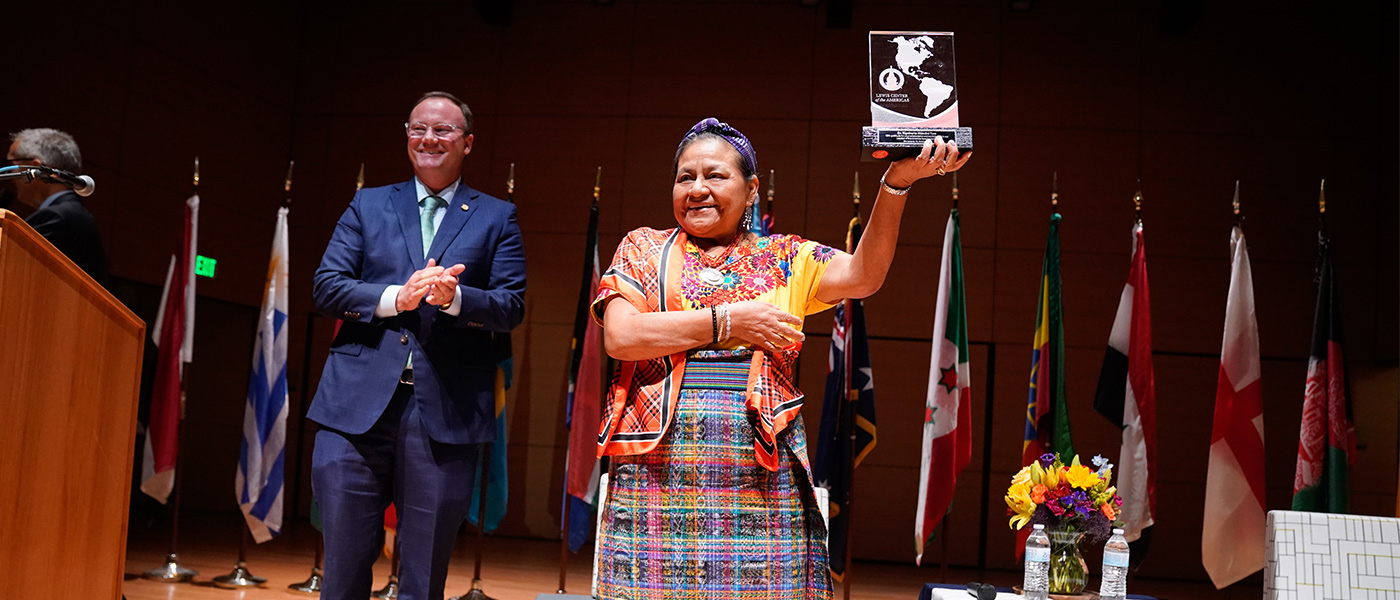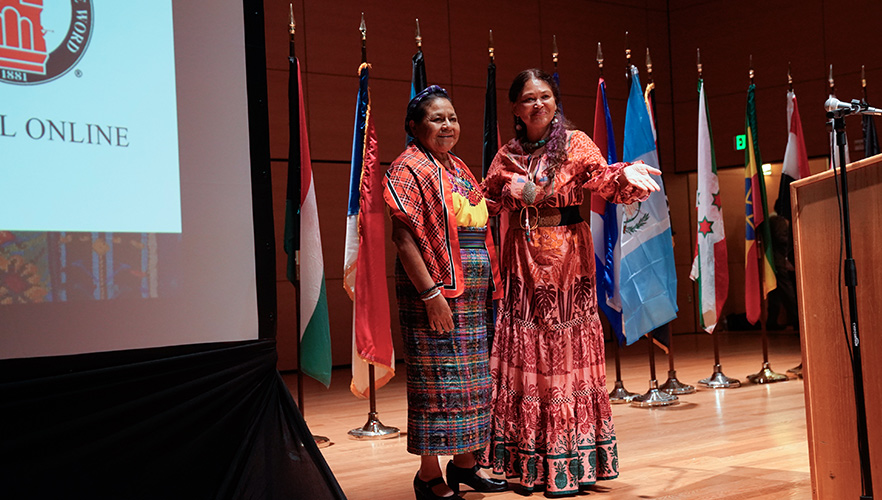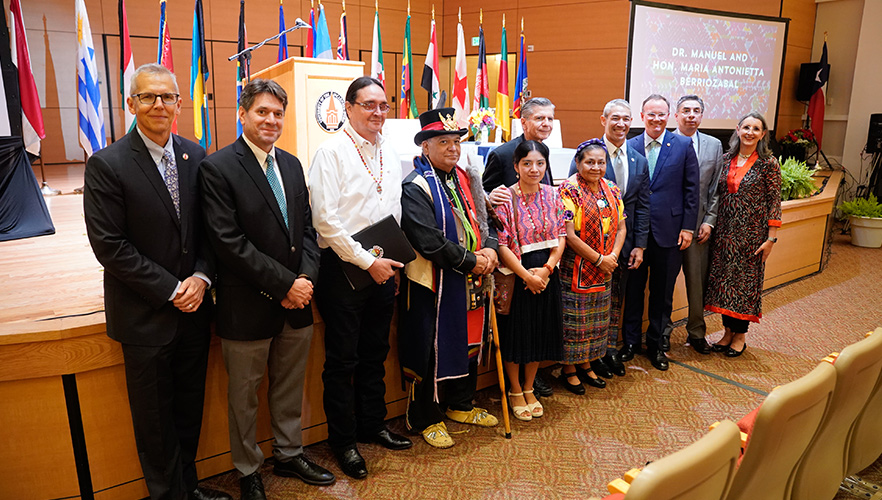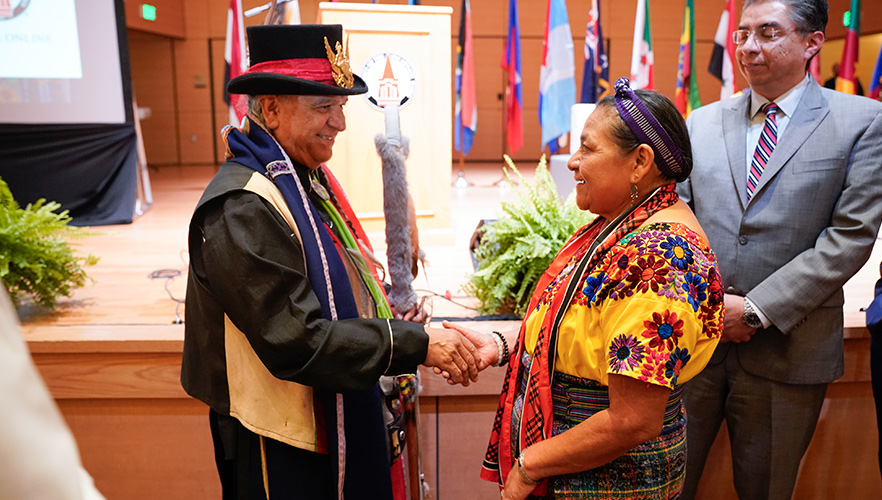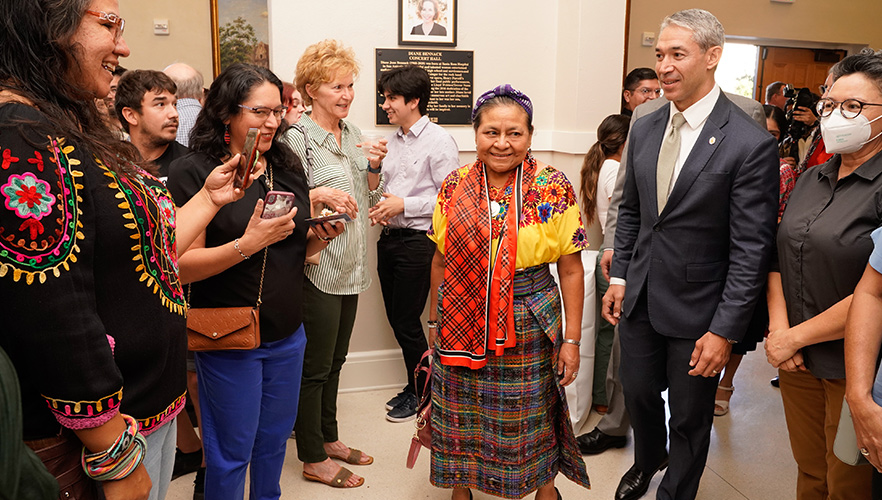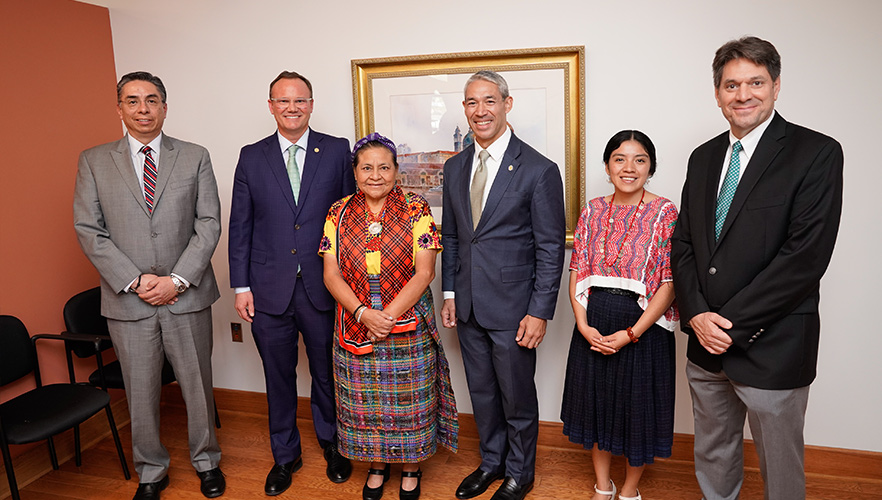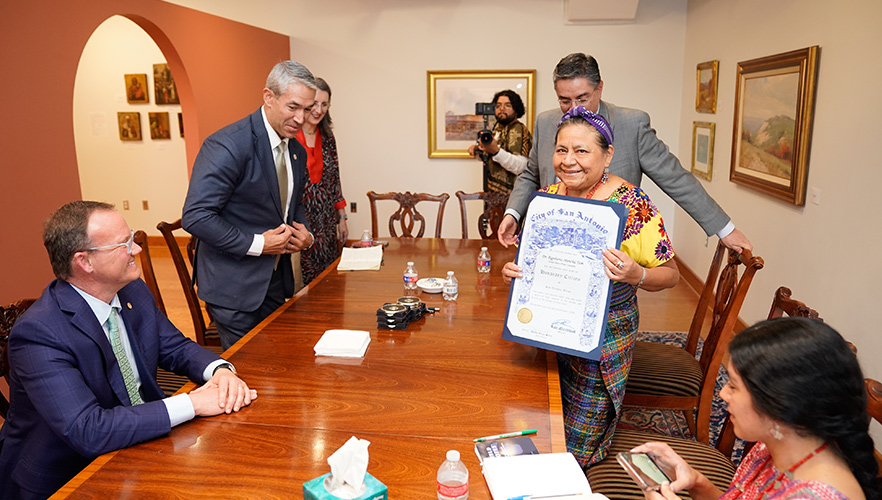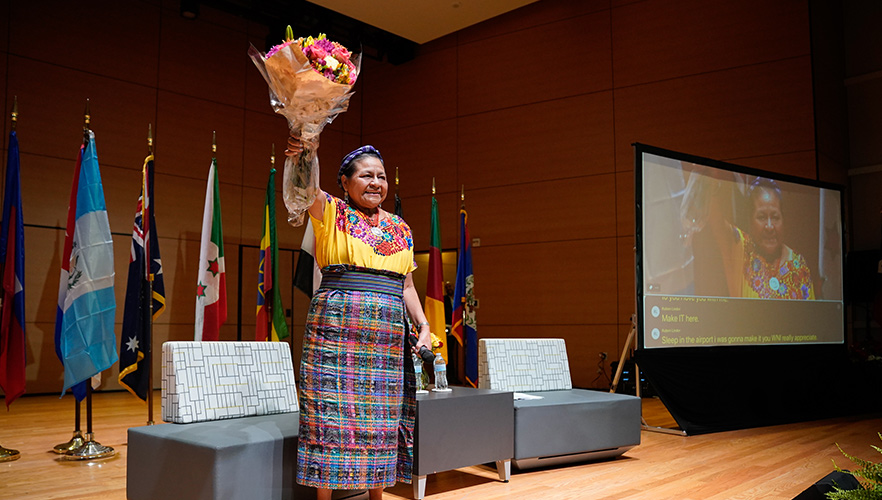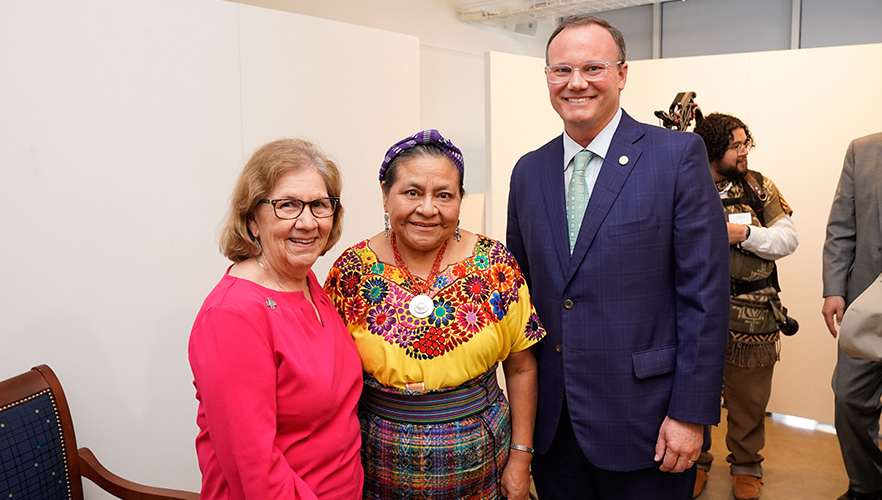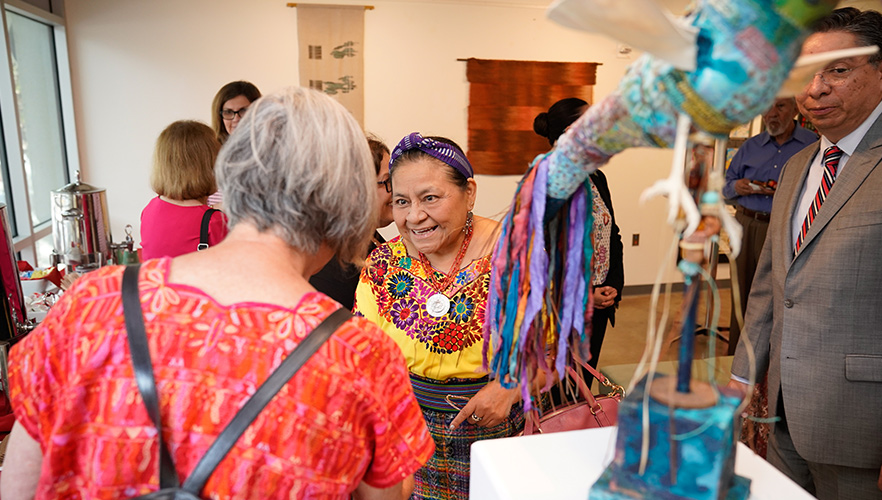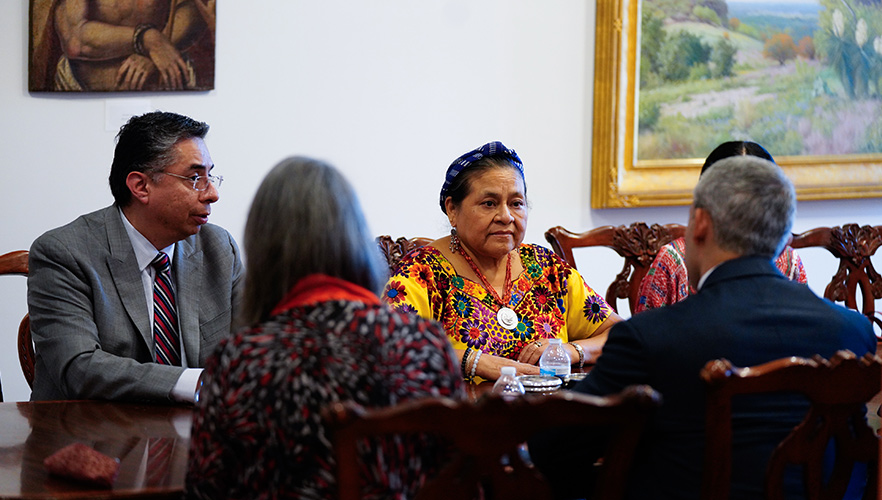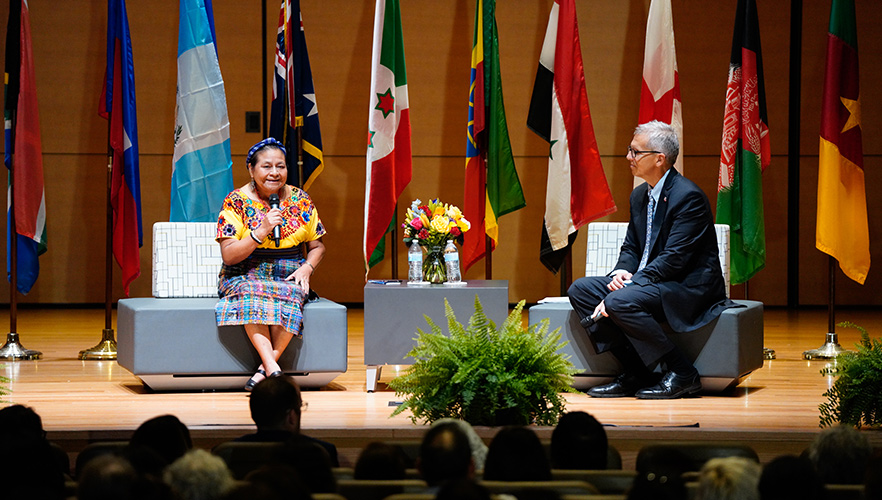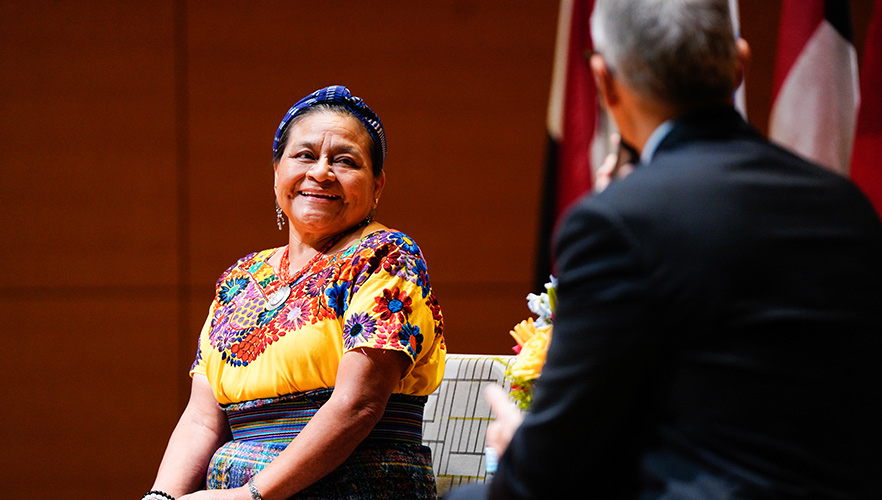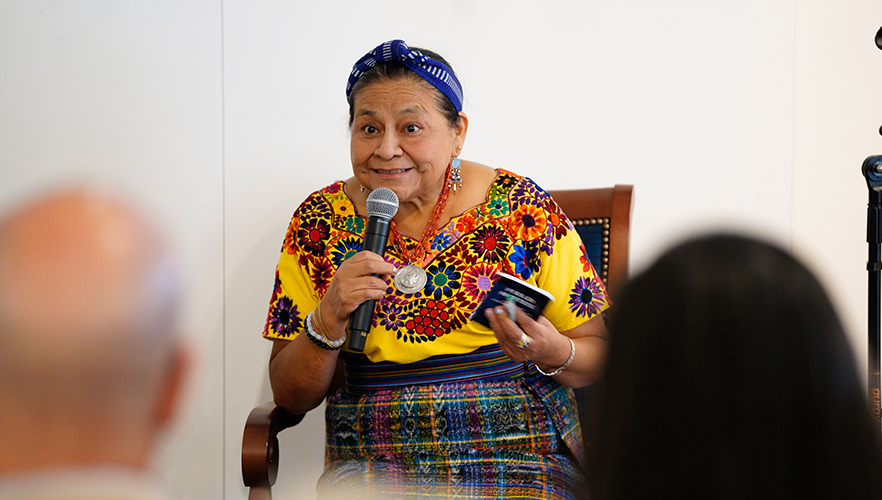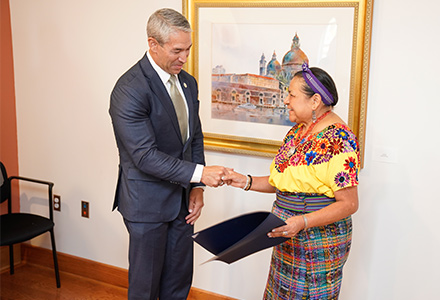 The UIW Liza and Jack Lewis Center of the Americas welcomed 1992 Nobel Peace Prize winner, Rigoberta Menchú Tum as the second lecturer of the center’s Leaders of the Americas Speaker Series. The annual event highlights leaders from around the world and the impact that they have had on the Americas through their careers, advocacy efforts and personal lives. During her visit, Dr. Menchú Tum met students from UIW’s Honors Program, answering their questions about her experiences. She also addressed the UIW community, met with University leadership, and was welcomed to the City of San Antonio by Mayor Ron Nirenberg.
The UIW Liza and Jack Lewis Center of the Americas welcomed 1992 Nobel Peace Prize winner, Rigoberta Menchú Tum as the second lecturer of the center’s Leaders of the Americas Speaker Series. The annual event highlights leaders from around the world and the impact that they have had on the Americas through their careers, advocacy efforts and personal lives. During her visit, Dr. Menchú Tum met students from UIW’s Honors Program, answering their questions about her experiences. She also addressed the UIW community, met with University leadership, and was welcomed to the City of San Antonio by Mayor Ron Nirenberg.
Rigoberta Menchú Tum is a Maya K’iche’ woman, activist, and Guatemalan social justice advocate. In addition to her embracing her Maya culture and spiritualism, she also believes and practices many teachings from the Catholic Church. She has dedicated most of her efforts towards advocating for human rights for all, particularly the rights of Indigenous peoples in her home of Guatemala and around the world.
Her journey first began as a teenager, as she participated in social justice efforts led by the Catholic Church. The years that followed were full of struggle and loss as she continued to persist in her efforts both during and after the Guatemalan Civil War. Most of these events can be found referenced in her book I, Rigoberta Menchú: An Indian Woman in Guatemala (1983).
Notable political moments from her career include her running for the president of Guatemala during 2007 and 2011, and founding Guatemala’s first Indigenous political party, Winaq.
To this day, she continues to advocate for the rights of Indigenous people and encourages others to continue in these efforts.
On Wednesday, Oct. 4, a standing room only crowd of faculty, administrators, community members, and students gathered in the Diane Bennack Concert Hall to hear Menchú Tum share her story and wisdom.
She shared just how important her identity as an Indigenous woman is to her, and how she continuously carries her ancestry with her.
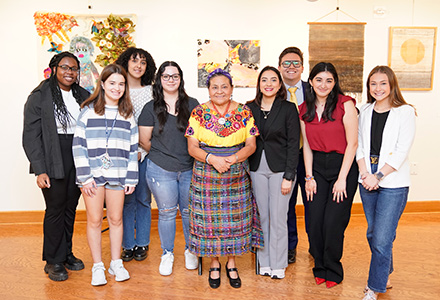 “In her presentations, she made very clear that being Maya is a great blessing for her, and she carries with her the wisdom of her Maya ancestors,” director of the Liza and Jack Lewis Center of Americas, Dr. Rafael Hoyle, shared. “She also underlined the fact that there are 43 million Indigenous people who live just in the concentrated area that stretches from Mexico to Panama. Those people represent a mosaic of cultures and languages.”
“In her presentations, she made very clear that being Maya is a great blessing for her, and she carries with her the wisdom of her Maya ancestors,” director of the Liza and Jack Lewis Center of Americas, Dr. Rafael Hoyle, shared. “She also underlined the fact that there are 43 million Indigenous people who live just in the concentrated area that stretches from Mexico to Panama. Those people represent a mosaic of cultures and languages.”
Though her heritage and unique background are foundational parts of her personal identity, Menchú Tum emphasized humanity’s compatibility, and the importance of celebrating that which brings people together. She shared that every person on the planet has a special energy, and that these energies are compatible with one another. In our pursuit of peace, she also noted that individuals must be open to not only learning, but unlearning some of the harmful ideas we accept as truth – ideas that keep us from achieving peace.
In relation, Menchú Tum encouraged her audience to interact and connect with nature. This planet that simultaneously supports every living being, connects all of humanity – she urged listeners to unite with one another in defense of our shared home, reminding everyone that it is not an option to protect the environment, but an obligation.
Marcos Fragoso, UIW’s Vice President of International Affairs, oversees the University’s international initiatives, including those of the Lewis Center of the Americas – for him, watching the success of Menchú Tum’s visit and the impact she made on the UIW community was a poignant moment.
“My favorite moment of the event that I want to share with the UIW community was when Dr. Rigoberta Menchú Tum mentioned backstage that she was very happy and grateful to have been at a university where the social causes for which she has fought and continues to fight for are visible in the everyday actions of students, faculty, and the university community,” he reflected. Learn more about Rigoberta Menchú Tum’s story.
For more information, visit the Liza and Jack Lewis Center website.


